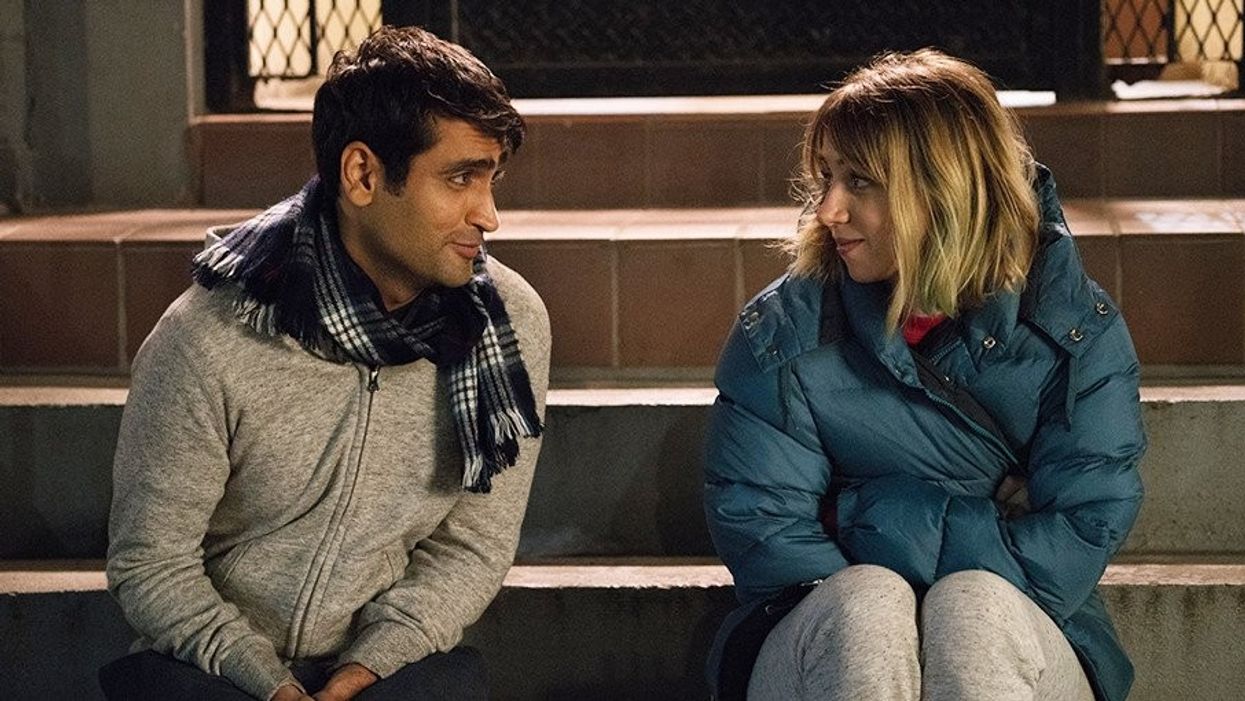6 Pragmatic Screenwriting Tips From the Writers of 'The Big Sick', 'Get Out' and More
We even included Aaron Sorkin and Darren Aronofsky for good measure.

Reading the screenplays of the award-contending films of the year can certainly help you with your craft, but hearing how those stories were created gives you a better understanding of the journey required to get those stories on the page and ultimately on the screen.
Screenwriters Emily V. Gordon (The Big Sick), Jordan Peele (Get Out), Aaron Sorkin (Molly's Game), Darren Aronofsky (mother!), Anthony McCarten (Darkest Hour), and Fatih Akin (In the Fade) recently sat down for the annual Writer Roundtable hosted by The Hollywood Reporter. Below, we share six screenwriting lessons from these writers along with short videos of their contributions to the roundtable discussion.
"The only films I know how to make are films that I couldn't live without making. "
— Darren Aronofsky
1. Write what you know (just give it some time before you do)
Emily V. Gordon co-wrote the autobiographical The Big Sick with her husband and the film's lead actor Kumail Nanjiani. The story starts as a typical rom-com, then hits the usual estrangement between the couple before veering into a difficult, confusing time when Emily suddenly goes into a mysterious coma, pulling Kumail back into her unconscious life to support her and her parents during the emotional ordeal. Telling the story of your own life can be incredibly difficult if you're still wrestling with the emotions of the events portrayed in your script.
Gordon reflected on the pros and cons of writing an autobiographical film: "It had been five years since the events of the film, and that helps tremendously because you're far enough away that you can look at it and still feel it, but not so much that it's overwhelming you. If you see someone create a piece of art while they're still in the throes of going through something, it feels too vulnerable for you to be watching — which can be beautiful. But we didn't want this to feel like an overly intense kind of movie, [where] you feel in danger while you're watching."
2. Make your protagonist relatable
While writing the script for his directorial debut Get Out, Jordan Peele was concerned that he might alienate everyone in the theatre. "I was worried at several stages during the writing that this would be this horribly divisive project where maybe I'd lose black people because we're victims, and that's hard to watch," said Peele. "Maybe I'd lose white people because white people are the villains, and that would be an assault. And one of the most fulfilling things to see was how an audience would go in with their preconceived notions, but by the middle, they were all Chris. They were all the main character." By creating a relatable protagonist, Peele pulled all of his audience members into the main character's story, regardless of their personal experiences or the color of their skin.
"Most days I go to bed not having done anything except climb the walls because I don't have an idea."
— Aaron Sorkin
3. Getting stuck is part of the job
When you think of Aaron Sorkin, you think about his rapid-fire, witty banter that goes on for pages and pages, yet breezes by while you watch. Sorkin is so prolific, you'd think he must write constantly. But according to the man himself, that is far from the case. "Listen, most of the time I really struggle with writing," said Sorkin. "People ask if I have writer's block. That's my default position. And so most days I go to bed not having done anything except climb the walls because I don't have an idea or I'm stuck where I am. And you really do think in that moment you're not ever going to write again. Those are tough moments."
4. Push past the endless "no's"
Darren Aronofsky is no stranger to creating controversial films, nor does he shy away from making audiences very uncomfortable. Making controversial films also means facing a lot of rejection. "There's so many struggling moments, making a movie," said Aronofsky. "The amount of 'no's' you get as a filmmaker every day are endless. And that's why the only films I know how to make are films that I couldn't live without making. They're just burning from deep inside."
"I often find that writers who disavow the importance of an ending are just not very good at endings."
— Anthony McCarten
5. Know your ending before you begin
Some writers may believe in writing stories without knowing the final outcome, but to get the most out of the craft of screenwriting, you really ought to know where you are going before you begin. Anthony McCarten, screenwriter of Darkest Hour, explains, "I often find that writers who disavow the importance of an ending are just not very good at endings. And so they fudge it and try to raise the quality of other elements of storytelling. But to me, it's critical to know what you're working toward so that you can fade and faint away from that and take the audience away and mislead and do all those craft things that are so important to a great story."
6. Be daring
Many of us may stop our creativity because we are afraid to go outside our comfort zone, unsure of what we'll find and how our work will be received. Fatih Akin, writer/director of In the Fade, is not that artist. When asked if there was anything Akin would not do on film, the filmmaker responded, "No. There are no limits. I would try everything. Can be porn." While we're not necessarily advocating that you write or create porn, we are encouraging you to be bold in your writing.
You can read more of their conversation on The Hollywood Reporter's website.
Source: The Hollywood Reporter











